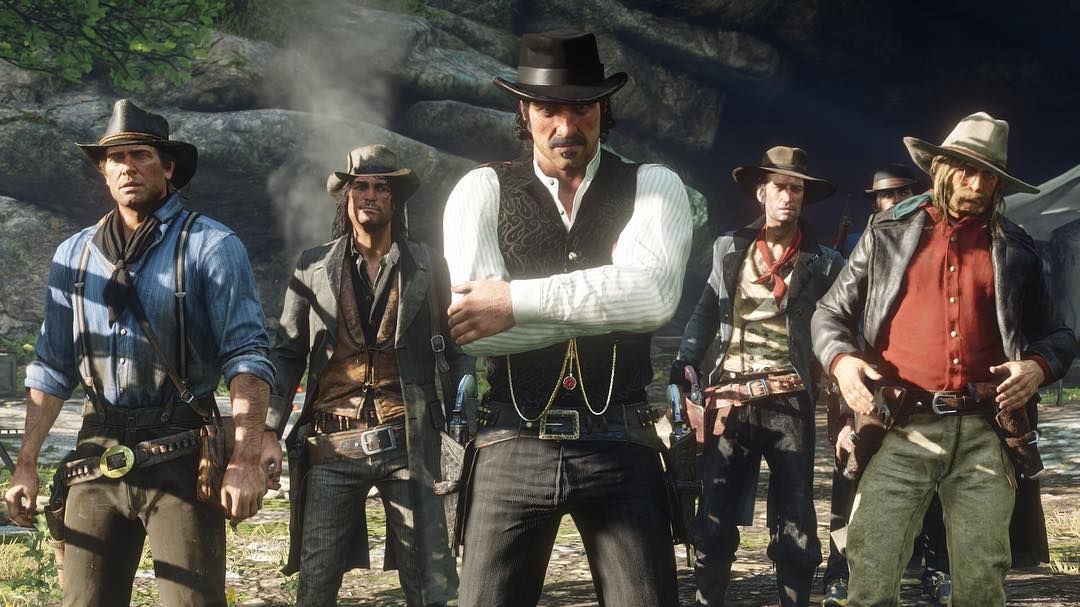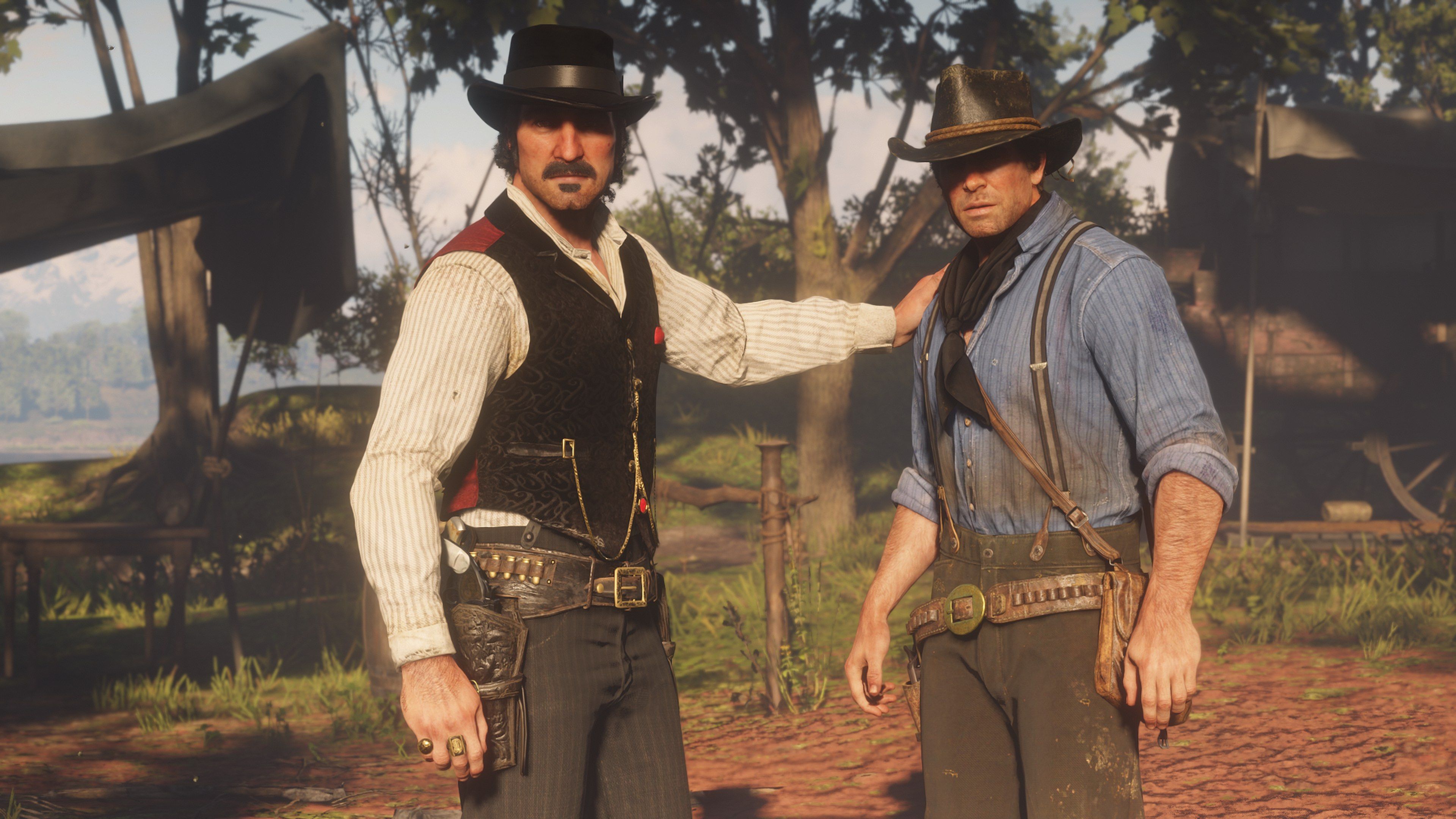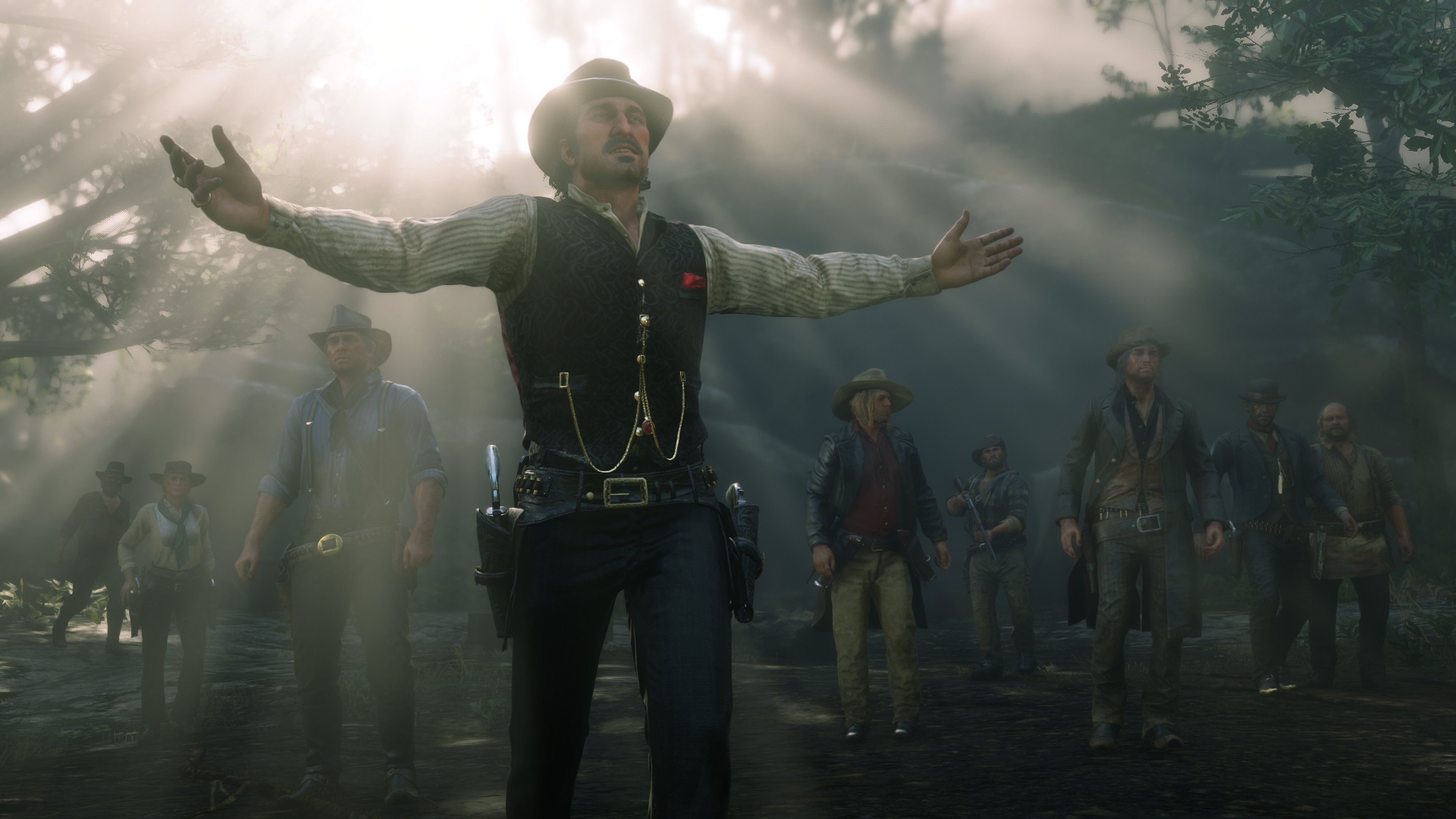This past weekend, I completed the main story for Red Dead Redemption 2. Yes, I know, the game is massive and most people have spent a majority of their time exploring its vastness. It might just be a bit too much video game for some. I have (for better or worse) instead opted to power through the narrative rather than having the game's journey spoiled for me.
Speaking of spoilers, if you haven't already guessed it from the title, it should almost go without saying that I'm about to discuss major story spoilers from Red Dead Redemption 2. If you care to avoid having such things spoiled, I'd recommend coming back after you finish the game's main story missions.
Red Dead Redemption 2 is the definition of a “slow burn” when it comes to modern video games, as a majority of the time with the story is spent on exposition (for the world and its characters). The title takes its sweet time to build out character relationships and reinforce existing ones through the eyes of Arthur Morgan, the main protagonist.
But this isn't just a story about Arthur. Red Dead Redemption 2 is a story about the beginning of the end of the West, and it's at its best when its characters and their relationships to one another are falling apart at the seams.
[pullquote]"Red Dead Redemption 2 is the definition of a “slow burn” when it comes to modern video games."[/pullquote]
While we have known the fates of characters like John Marston and Dutch Van Der Linde (the gang's charismatic leader and father figure) for almost a decade since the original game, Red Dead Redemption 2's story adds additional gravitas to the troubled relationships and succeeds in making the original Redemption payoff just that much better.
Throughout the story of Red Dead Redemption 2, Dutch Van der Linde sells his followers on the idea of living out their days on an island paradise - even if it means having to lie, cheat, and kill in the process. And as a part of the gang, you either fall in line or have your loyalty questioned. With Dutch, you're either in, or well...you might as well be dead.
After about 25 or so hours of playing through the story, the Van der Linde gang had trekked up and down the country with the Pinkerton detective agency hot on its tail. All the while, Dutch still continued to stress the need of "one more score" in the hopes that it will have the gang set for life. By the time that I was knee-deep in the chaos that is Chapter 6 (the game's final story chapter), like Arthur Morgan, I too was exhausted and defeated.
At this point, if I heard "one last job and we are done" come out of Dutch's mouth again, I was going to blow a gasket. The gang's faith towards Dutch at this point is also in shambles, as other members began realizing that the walls (and the Pinkertons) are quickly and surely closing in on them. The same can be said about Dutch's demeanor towards the gang as he pretends to be on the "up and up" while operating with an unknown government informant among his ranks.
This tension reaches a fever pitch as Dutch soon becomes completely unpredictable. The mission that really kicks all of this into high gear is "Just a Social Call" in Chapter 6, where Arthur, Micah, and Dutch head to Annesburg to confront Leviticus Cornwall and request a truce (on top of ten thousand dollars and a ship for safe passage out of the country).
With so much of the game's story crossing paths with Cornwall's various business ventures, a stand-off with the wealthy industrial tycoon seems all but inevitable at this point in the game. If anything, I thought this was another stop-gap meeting before a showdown towards the end.
But when Dutch draws his gun and then proceeds to kill the man in cold blood, you quickly realize that all bets are officially off. And more importantly the "Man with the Plan" is now, quite literally and figuratively, shooting from the hip. There actually is no plan, and Dutch, no matter how it turns out, will take care of priority number one: not the gang, but instead his own survival.
[pullquote]"Dutch, no matter how it turns out, will take care of priority number one: not the gang, but instead his own survival."[/pullquote]
This moment sets off a chain of events that carries the rest of the game's narrative and has Arthur reaching for his piece of Redemption pie. During this time, Arthur (among other gang members such as Josiah Trelawny and the camp cook Simon Pearson) is quickly realizing there is no end - or chance at civility - in sight.
This complete character breakdown is all taking place while we are waiting on a (non-reveal) reveal of Marston's turn against the gang - which (shockingly) never quite happens the way we might have expected it to happen since Red Dead Redemption 2's announcement.
As the player, we're left waiting on a straw to break the camel's proverbial back as we try to figure out what, how, and when John Marston's tipping point was going to rear its head. We are waiting on him to go full Keyser Söze on the gang. But instead, we are left uneasy as it never actually comes into fruition, and instead John is coached to save himself and his family by the forever-loyal Arthur Morgan. When that moment happened, all I could think to myself was: "What the actual f***."
It's no secret that Rockstar Games founders (and RDR2 writers) Dan and Sam Houser inject their obvious love of film into their games: the influences are clearly apparent, not just in setting but also in structure. Red Dead Redemption 2's use of dramatic structure is in line with what one would expect from classic cinema.
[pullquote]"Like RDR2, GoodFellas showcases the bond and the rise of a 'crew' as they make their way through various criminal enterprises and the lifestyle that comes with it."[/pullquote]
Looking back at one of my personal favorite films, I see a similar use of dramatic structure in Martin Scorsese's GoodFellas. The dynamic quasi-father and son bonding between Dutch and Arthur reminds me of Henry Hill (played by Ray Liotta) and Jimmy Conway (played by Robert DeNiro). Like RDR2, GoodFellas showcases the bond and the rise of a "crew" as they make their way through various criminal enterprises and the lifestyle that comes with it. As the scores get bigger, the stakes raise higher, and, like Arthur and Dutch, they find themselves in the sights of the law.
Like Dutch, Jimmy Conway's character breaks down when he feels the pressures of the mob life getting to him (along with concerns of a rat within his inner circle). Jimmy (again, like Dutch) becomes unpredictable to the point that his own protege (Hill) feels that even his life is at risk, as Conway's own survival and paranoia has superseded both trust and loyalty.
This "breakdown" or "falling apart" of trust and loyalty among characters like Dutch and Arthur in Red Dead Redemption 2's story is what makes the long journey worth it. Even more so than the epic heists and over-the-top shootouts, when everything is falling apart towards the end of "Arthur's story" that's when the game is at its very best.




